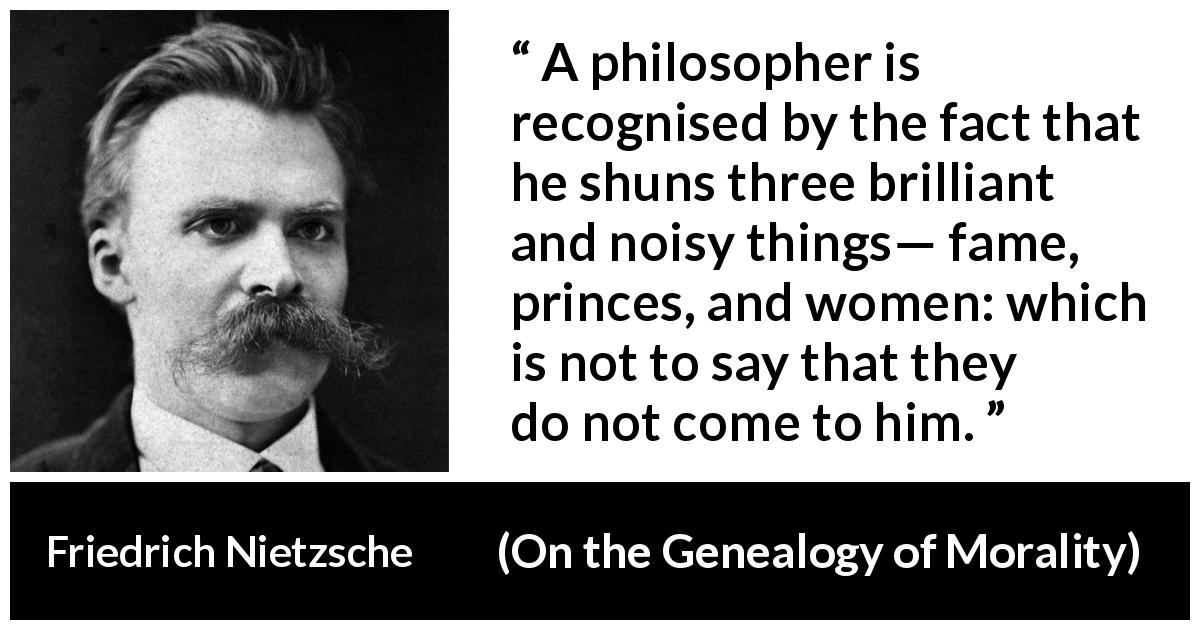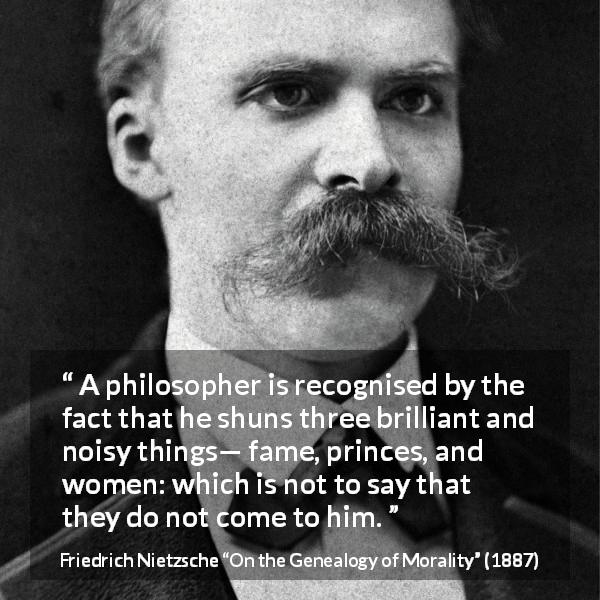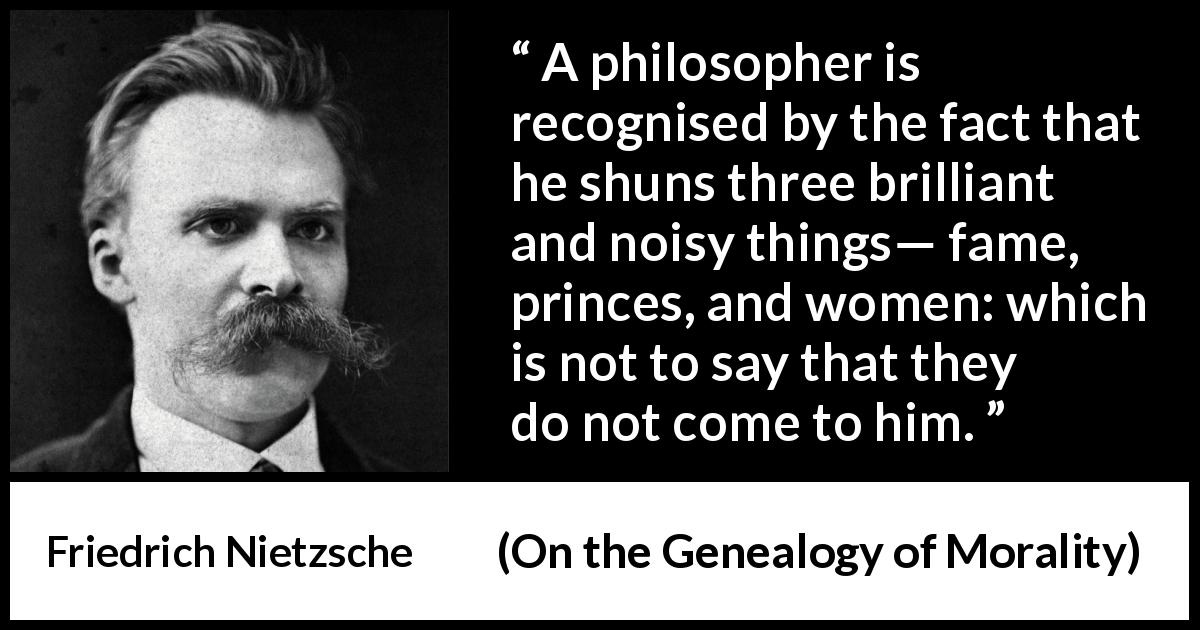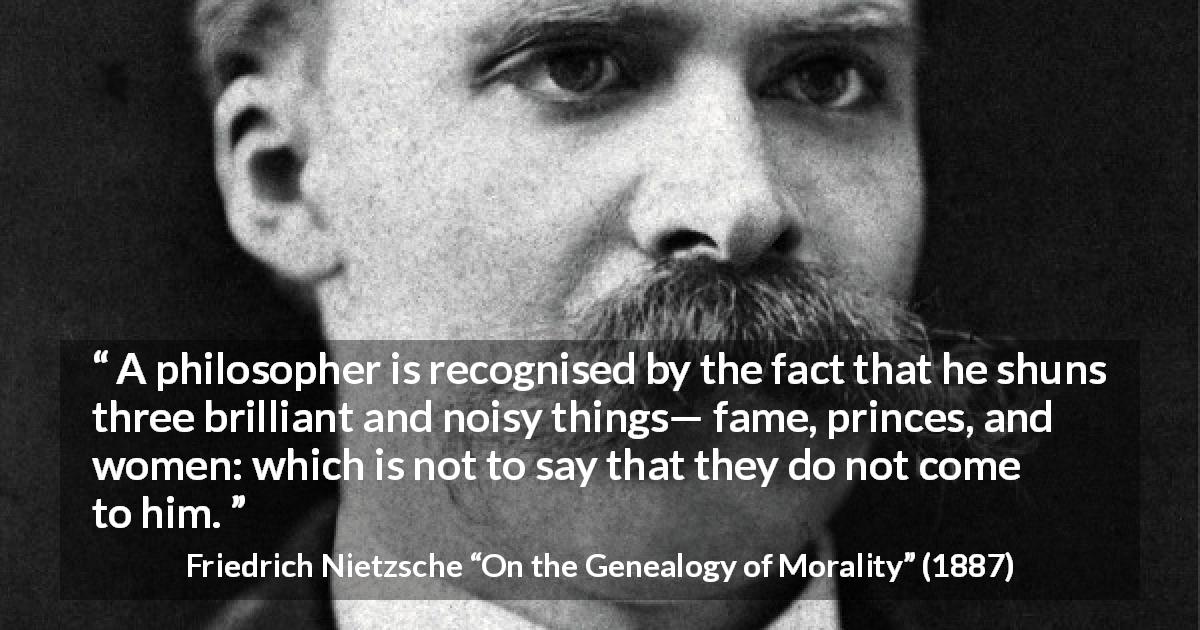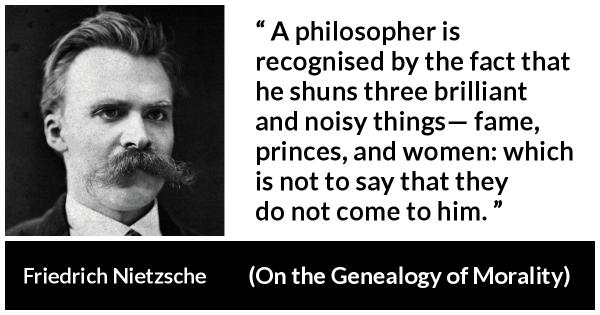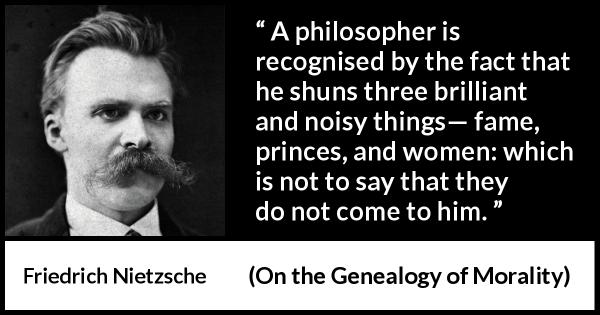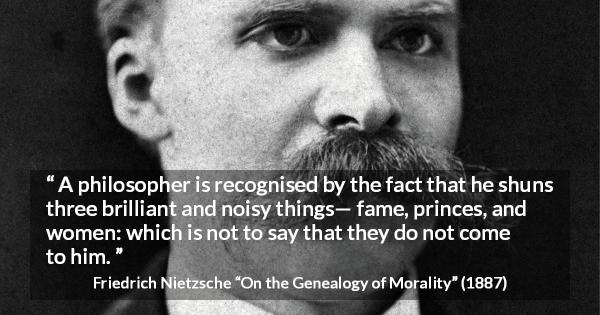“ A philosopher is recognised by the fact that he shuns three brilliant and noisy things— fame, princes, and women: which is not to say that they do not come to him. ”
Friedrich Nietzsche, On the Genealogy of Morality (1887). copy citation
| Author | Friedrich Nietzsche |
|---|---|
| Source | On the Genealogy of Morality |
| Topic | women philosophy fame |
| Date | 1887 |
| Language | English |
| Reference | |
| Note | Translated by Horace B. Samuel |
| Weblink | https://en.wikisource.org/wiki/The_Genealogy_of_Morals |
Context
“This third one speaks aggressively, he comes too near our body, his breath blows on us—we shut our mouth involuntarily, although he speaks to us through a book: the tone of his style supplies the reason—he has no time, he has small faith in himself, he finds expression now or never. But a spirit who is sure of himself speaks softly; he seeks secrecy, he lets himself be awaited. A philosopher is recognised by the fact that he shuns three brilliant and noisy things— fame, princes, and women: which is not to say that they do not come to him. He shuns every glaring light: therefore he shuns his time and its "daylight." Therein he is as a shadow; the deeper sinks the sun, the greater grows the shadow. As for his humility, he endures, as he endures darkness, a certain dependence and obscurity: further, he is afraid of the shock of lightning, he shudders at the insecurity of a tree which is too isolated and too exposed, on which every storm vents its temper, every temper its storm.”
source
